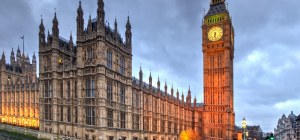54: Brexit – Don’t lose your way with each passing day

Andrew Lister Senior Associate

David Mundy Partner & Parliamentary Agent
The impact of Brexit on the environment was a key concern of the Remain campaign and maintaining environmental protections when the UK leaves the EU has continued to be a high profile topic since the referendum.
Retention of existing EU environmental law under the Withdrawal Act may provide what the Government has called a ‘baseline’ of protection but this has done little to assuage concerns that the UK could lose its way on environmental protection after March 2019.
This post looks at the Government’s response to those concerns, namely section 16 of the Withdrawal Act and proposals for a new Environmental Principles and Governance Bill.
Section 16 of the Withdrawal Act
We have followed the introduction of section 16 of the Withdrawal Act in previous posts (here and here). Inserted in the latter stages of the Withdrawal Act’s progress through Parliament, section 16 attempts to address two of the key concerns about the retention of EU environmental law under the Act:
- retained legislation could quickly become ‘zombie legislation’ without an adequate means to enforce, update and develop it; and
- retained legislation may fail to ensure the general applicability of core environmental principles derived from EU treaties.
To do this, section 16 provides that within six months of the Withdrawal Act being passed, the Government must publish a draft Bill consisting of (amongst other things):
- a set of environmental principles (which must include the nine principles set out in the Act);
- a duty on the Secretary of State to publish a statement of policy about the application and interpretation of those principles (together with an associated duty for ministers to have regard to this statement); and
- provisions for the establishment of a public authority for taking proportionate enforcement action (including legal proceedings if necessary) where the authority considers that a minister is not complying with environmental law.
The measure proposed by the Government to meet the requirements of section 16 is the Environmental Principles and Governance Bill.
Environmental Principles and Governance Bill
Defra began consulting on the introduction of an Environmental Principles and Governance Bill in May this year, before the introduction of section 16 in the Withdrawal Act. However, the Withdrawal Act now provides a statutory basis for the Bill’s publication and sets out what the Bill should include.
The consultation on the introduction of the Bill, which closed earlier this month, focused on two proposals:
- the creation of a new ‘environmental watchdog’ to hold Government to account on its environment ambitions and obligations; and
- the introduction of measures to set down and define the role of environmental principles in environmental regulation and decision making.
Environmental watchdog
The European Commission, together with the Court of Justice of the European Union currently provide monitoring and enforcement of the UK’s environmental obligations and there have been calls for any new watchdog to at the very least replicate or build on the role the EU institutions currently play.
However, it is uncertain whether the Government will go this far. Although Defra’s consultation document states that the new body should be independent, established on a statutory basis and able to hold the Government to account on its environmental obligations and ambitions, details on how the body’s independence will be secured, the powers it will be given and the functions it will fulfil are scarce.
A key question raised by many campaigners has been whether the new watchdog will be able to bring legal proceedings against the Government if it considers the Government is failing to comply with environmental law. Following ClientEarth’s success challenging the Government’s air quality plans, the ability of the watchdog to take legal action against the Government is seen as crucial to the watchdog’s ability to enforce and uphold environmental laws.
Defra’s consultation document is noticeably quiet on this point, noting that ‘advisory notices’ should be the main form of enforcement. In contrast, Article 16 of the Withdrawal Act states that the environmental watchdog should have functions for taking proportionate enforcement action ‘including legal proceedings where necessary’.
It is the latter approach that the Government now seems to be pursuing. In response to the Bar Council’s critique of the proposals, Defra confirmed earlier this month that, ‘the new independent environmental body will be able to bring legal proceedings against the Government if it considers the Government is not complying with environmental law’, and this power would be included in the Bill being brought forward in the autumn.
While this may provide some reassurance for campaigners, there are still fundamental questions about the effectiveness of such a challenge and the watchdog’s role, independence and jurisdiction to be resolved.
Environmental Principles
How core environmental principles are to be incorporated into UK law is left even more uncertain in the consultation document with Defra consulting on two main options:
- the environmental principles would be listed in the Environmental Principles and Governance Bill, with a statutory policy statement under that legislation to explain how they should be interpreted and applied; or
- the principles would be set out and explained in a statutory policy statement issued under primary legislation.
These options have been superseded by the Withdrawal Act which provides that certain environmental principles must be included in the Bill itself. However, whether any additional principles (for example a non-regression principle) will be included in the Bill and exactly what the accompanying statutory policy statement will look like remains to be seen.
Effect on environmental protection
In his evidence to the House of Commons Environmental Audit Committee, Professor Burns noted that there was one obvious principle missing from the list of environmental principles included in Defra’s consultation document, which is the principle of protection, included in Article 191(2) of the Treaty of the Functioning of the European Union, that requires the EU to pursue a high level of environmental protection.
This point seems get to the heart of the concerns about environmental protection post Brexit. We may retain existing EU law and principles and even have a new watchdog to enforce them but will the push for enhanced environmental protection continue, after we leave the EU?
The Government’s intention appears to be that it will. The recent whitepaper, on the future relationship between the UK and EU notes that to ensure an open and fair trading environment, the UK will maintain ‘high standards through non-regression provisions in areas including the environment’ and is ‘committing to high regulatory environmental standards through a non-regression requirement’.
The white paper also points to ‘strong domestic commitments to maintaining high standards on the environment’, a reference to Defra’s 25 year plan released in January which contains ambitious plans for improving the UK’s environment.
The question is whether the Environmental Principles and Governance Bill, due to be published this autumn, will be sufficient to reassure critics that the Government is serious about these ambitions.









